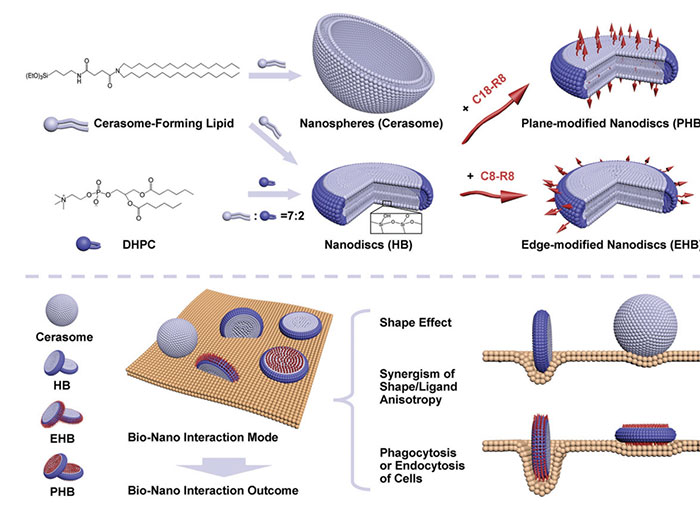Abstract: In an attempt to manipulate the biological features of nanomaterials via both anisotropic shape and ligand modifcation, four types of nanoparticulates with good morphological stability are designed and engineered, including hybrid nanospheres, nanodiscs, and nanodiscs with edge modifcation or plane modifcation of octa-arginine (R8) sequence. It is found that the R8 modifcation anisotropy can trigger huge differences in the endocytosis, intracellular traffcking, and even tissue penetration of nanoparticulates. From plane modifcation to edge modifcation of R8, the maximum increase in cell uptake is up to 17-fold, which is much more signifcant than shape anisotropy alone. On the other hand, six types of different cell lines are investigated to simulate biological microenvironment. It is demonstrated that the maximum difference in cell uptake among six cell lines is 12-fold. Three main driving forces are found to contribute to such bio–nano interactions. Based on the fndings of this study, it seems possible to manipulate the biointeraction mode of nanomaterials and its output by regulating their anisotropy in both shape and ligand modifcation.
Authors: Xiaoyou Wang, Li Lin, Renfa Liu, Min Chen, Binlong Chen, Bo He, Bing He, Xiaolong Liang, Wenbing Dai, Hua Zhang, Xueqing Wang, Yiguang Wang, Zhifei Dai,* and Qiang Zhang*
Published in Advanced Functional Materials, 4 May 2017
See full text: http://onlinelibrary.wiley.com/doi/10.1002/adfm.201700406/abstract
